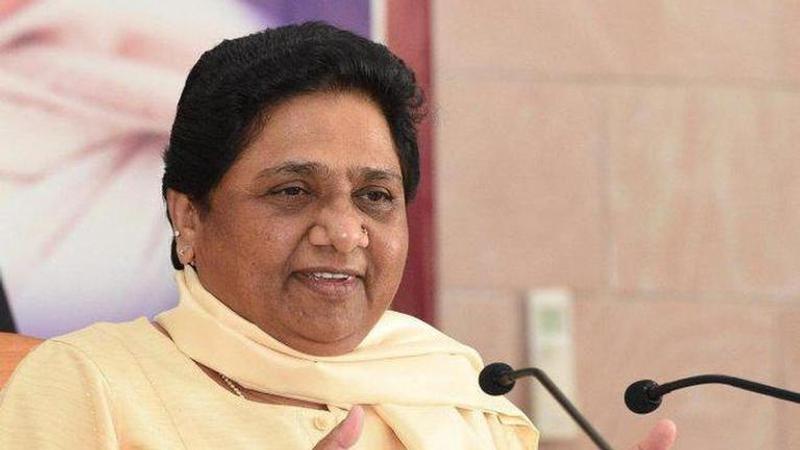Published 15:47 IST, January 6th 2020
CAA issue: BSP team meets UP guv, seeks jailed protesters'
A Bahujan Samaj Party delegation on Monday met Uttar Pradesh Governor Anandiben Patel and sought her intervention for the release of "innocent" people jailed in connection with protests against the amended citizenship law.

A Bahujan Samaj Party delegation on Monday met Uttar Pradesh Governor Anandiben Patel and sought her intervention for the release of "innocent" people jailed in connection with protests against the amended citizenship law. The BSP's demand came against the backdrop of a local court granting bail on Saturday to social activist Sadaf Jafar and former IPS officer S R Darapuri, besides 13 others arrested in connection with anti-CAA protests in Lucknow.
The delegation, led by party MP Satish Mishra, handed over a memorandum to the governor at Raj Bhawan a day after BSP chief Mayawati asked the Uttar Pradesh government to seek apology from the public for putting anti-citizenship law protesters behind bars without thorough investigation.
In a tweet, the BSP president said, "In Uttar Pradesh, especially in Bijnor, Sambhal, Meerut, Muzzafarnagar, Firozabad and other districts, innocent people have been sent to jail for protesting against the CAA/NRC without an investigation. This issue has also been raised by the media and is highly shameful and condemnable".
Accusing the Yogi Adityanath led government of jailing anti-Citizenship Amendment Act protesters without any proper investigation, she asked them to seek an apology from the public. Mayawati also demanded financial assistance to those killed in the protests. Officials maintain that 19 persons died in clashes during widespread protests across the state in December, though opposition parties claim a higher toll. Mayawati also urged the state government to provide "justifiable" financial assistance to the kin of those who have died during the protests.
Around 1,200 people were arrested and 5,558 kept in preventive detention following clashes during the protests, officials said. The Act grants citizenship to Hindus, Sikhs, Jains, Parsis, Buddhists and Christians fleeing religious persecution from Pakistan, Afghanistan, and Bangladesh who came to India on or before December 31, 2014. It has been called discriminatory as the legislation excludes Muslims from the three countries.
Updated 15:47 IST, January 6th 2020




